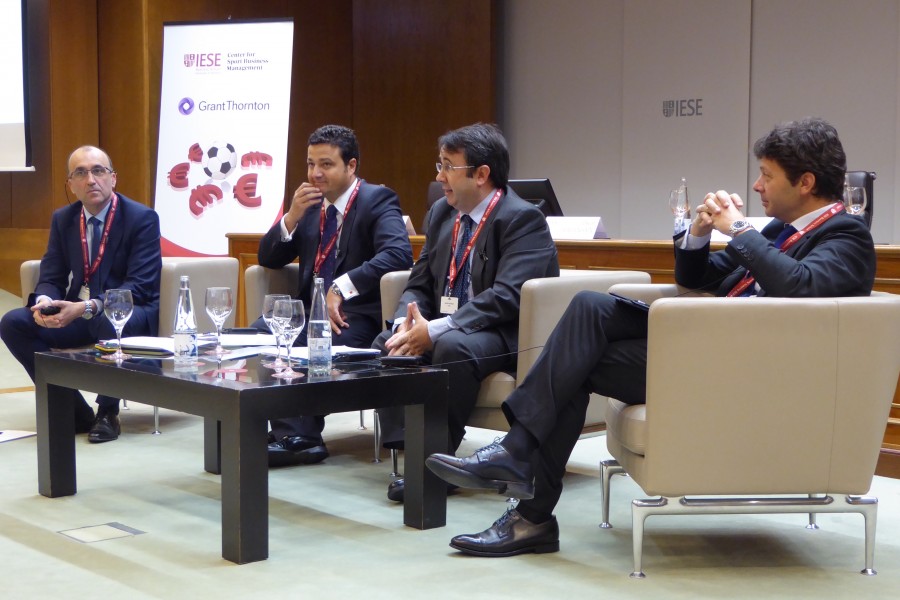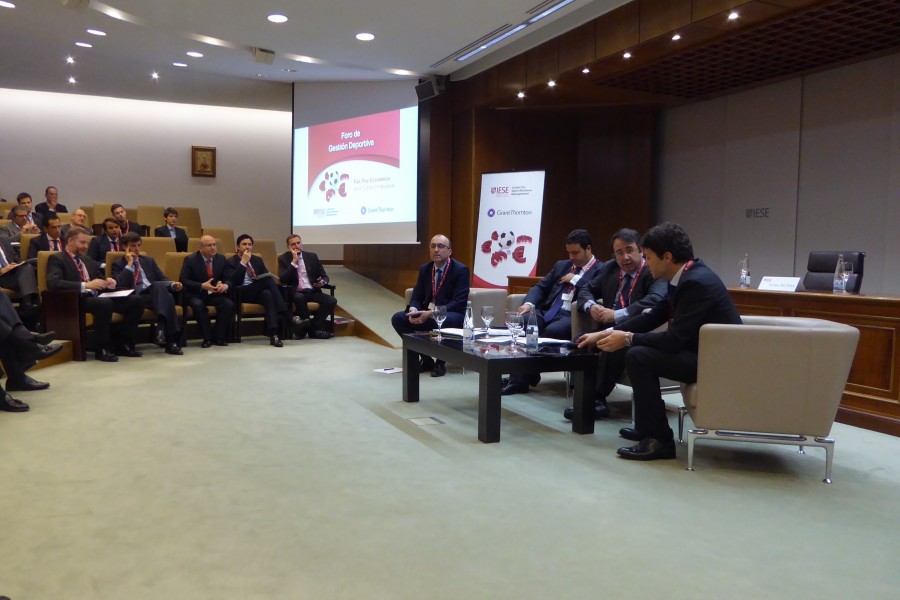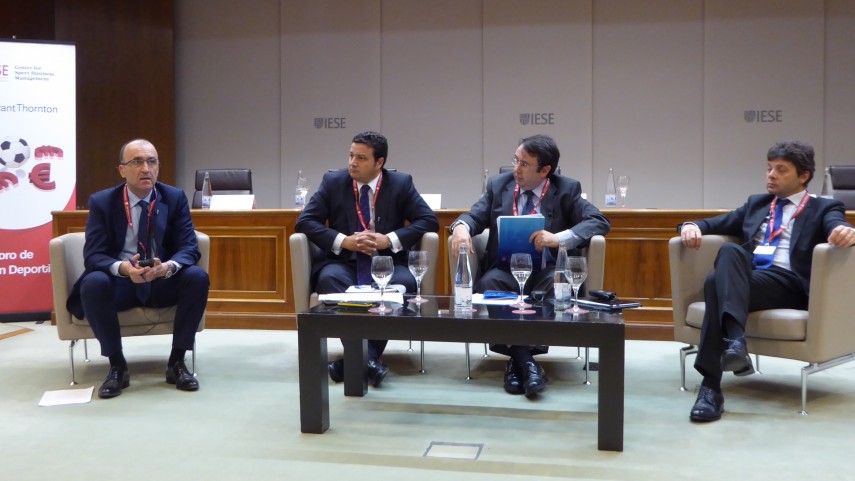News
WED 20.04.2016
On Wednesday morning LaLiga took part in the Conference on Sports Business Management held at the IESE Business School in Madrid in conjunction with consulting firm Grant Thornton. The event was designed to present and generate debate around what financial fair play brings to professional football through regulatory bodies, football clubs and sponsors.
LaLiga’s corporate managing director, Javier Gomez, helped get the event underway with a speech about the current and future situation regarding financial controls in football. “The Premier League is 20 years ahead of us, but we have the chance and challenge to catch it up and be better. We’ve drawn up some strategic methods with that objective in mind and the role that economic controls play is vital in guaranteeing a club’s future and sustainability. We already have objective, concrete information showing that the first stage of the project is going to plan,” stated Javier Gomez.
During his opening speech, LaLiga’s managing director emphasised that “after this first stage, we’re coming into the next one, in which economic controls are being used to buttress the professionalisation of the sector and boost the credibility of the professional football sector. LaLiga wants to be number one in everything that it does. That is our approach and what we work towards every day.”

Javier Gomez also participated in a round table with LaLiga, the Spanish Sports Council (CSD) and UEFA in what was a revealing discussion focusing on finances to which Oscar Graefenhain, the CSD managing director and Andrea Traverso, UEFA’s head of Club Licensing and Financial Fair Play also contributed.
Andrea Traverso stated that “the number of unpaid debts between clubs and public authorities was very high and growing. The use of financial fair play mechanisms sparked a small revolution.” Javier Gomez responded by saying that LaLiga “has gone one step further” regarding UEFA’s regulations. “We have closed the loop by developing ‘a priori’ economic controls. We designed a method that allowed us to establish a rule over the maximum cost for each club’s squad by analysing their accounts, financial positions and trends,” he explained. The measures taken ensured LaLiga halved the debt-to-income ratio between 2012 and 2016 for the 42 clubs in the Liga BBVA and Liga Adelante.
In the words of Oscar Graefenhain, these methods, along with the decree for the centralised sale of television rights have generated a “radical change that sparked controversy at the time, but it has now been shown that this was the solution.”

These measures would not have been possible to implement without all clubs’ collaboration, after they understood it would benefit all of them. “We explained to the clubs’ administrators what the financial controls meant and worked alongside them. They know that what applies to their club also applies to the others and allows them to compete on a level playing field. They know LaLiga’s serious approach allows them to compete for their objectives in fair conditions,” stated Javier Gomez.
LaLiga’s managing director also explained the next step. “The key element of economic controls is keeping an eye on the balance sheets, but others have come up too, such as ratios. Given that the clubs have been saved, our current challenge is to promote growth. Now we have earned credibility with the financial institutions, we have to establish methods that allow clubs to restructure their balance sheets and foster growth,” he concluded.
© LALIGA - 2016





